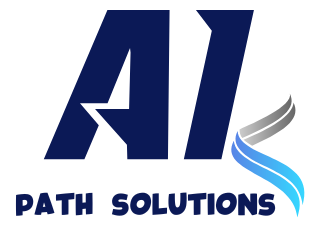In the rapidly evolving landscape of business, artificial intelligence (AI) is revolutionizing the way organizations manage their most valuable asset: their people. Human Resources (HR) is no exception. By leveraging AI, HR departments can streamline processes, enhance decision-making, and foster a more engaged workforce. This article explores the significant ways AI is reshaping HR functions, from recruitment to employee engagement.
1. Enhancing Recruitment Processes
One of the most significant applications of AI in HR is in the recruitment process. Traditionally, hiring involves sifting through countless resumes and applications, a time-consuming task that can lead to biases and missed opportunities. AI-powered tools can automate resume screening, analyzing candidates’ qualifications against job requirements quickly and objectively.
Applicant Tracking Systems (ATS) are increasingly utilizing AI algorithms to identify top candidates based on specific criteria, such as skills, experience, and education. These systems can help eliminate bias by focusing purely on data rather than personal judgments. As a result, organizations can enhance diversity and inclusion by widening the pool of candidates considered for positions.
2. Streamlining Onboarding
Once a candidate is hired, the onboarding process begins. AI can improve this experience by automating administrative tasks and providing new employees with personalized learning journeys. Chatbots can answer common questions, guide new hires through paperwork, and schedule training sessions. This automation not only saves HR professionals time but also creates a more welcoming experience for newcomers.
Moreover, AI can tailor onboarding programs based on individual skills and learning preferences. By analyzing new hires’ backgrounds and roles, organizations can design targeted training modules that help employees ramp up more effectively, leading to quicker integration and productivity.
3. Performance Management
AI technologies can also play a crucial role in performance management. Traditional performance reviews often rely on subjective assessments, which can lead to inaccuracies and employee dissatisfaction. AI can analyze employee performance data continuously, providing real-time feedback and identifying trends over time.
For instance, AI tools can evaluate employee contributions to projects, collaboration levels, and even engagement metrics. By using data-driven insights, HR can facilitate more constructive conversations between managers and employees, leading to actionable development plans tailored to individual strengths and weaknesses.
4. Employee Engagement and Retention
Engagement is a critical factor in employee retention, and AI can significantly enhance efforts in this area. AI-driven platforms can analyze employee sentiment through surveys, feedback forms, and social media interactions, allowing HR to identify potential issues before they escalate.
Predictive analytics can help organizations understand factors contributing to employee turnover. By analyzing patterns in data, such as engagement scores and career progression, HR can proactively address issues, create targeted retention strategies, and implement programs that foster a positive workplace culture.
5. Training and Development
In today’s fast-paced business environment, continuous learning is vital for employee growth. AI can identify skill gaps within the workforce and recommend personalized training programs. Learning management systems powered by AI can track employee progress, suggest relevant courses, and provide resources tailored to individual needs.
For example, AI can analyze an employee’s current skill set and career aspirations, then suggest training that aligns with both personal goals and organizational needs. This targeted approach not only enhances employee satisfaction but also contributes to overall organizational success by ensuring that the workforce is equipped with the necessary skills for future challenges.
6. Diversity and Inclusion
AI can also be instrumental in promoting diversity and inclusion within organizations. By analyzing hiring and promotion patterns, AI can identify biases in recruitment and career advancement processes. This data-driven approach allows HR professionals to develop strategies that promote equal opportunities for all employees.
Furthermore, AI can help organizations create more inclusive workplace cultures by analyzing employee feedback and engagement data. By understanding the diverse needs of employees, HR can implement programs that foster belonging and support for various demographics.
7. Ethical Considerations
While the benefits of AI in HR are substantial, ethical considerations must also be addressed. Issues such as data privacy, algorithmic bias, and the transparency of AI decision-making processes are critical. Organizations must ensure that AI systems are designed with fairness in mind, incorporating diverse data sets and ongoing monitoring to mitigate biases.
Moreover, HR professionals should prioritize transparent communication with employees about how AI is being used in HR practices. This transparency fosters trust and ensures that employees feel valued and heard in the decision-making processes that affect their careers.
Conclusion
AI is undoubtedly transforming the landscape of Human Resources. From enhancing recruitment and onboarding to improving performance management and employee engagement, AI technologies are empowering HR professionals to make data-driven decisions that benefit both employees and organizations.
However, as with any technological advancement, it is crucial to navigate the ethical implications and ensure that AI is used responsibly. By embracing AI while prioritizing ethical considerations, HR departments can create a more efficient, inclusive, and engaged workforce, paving the way for a brighter future in the world of work.
